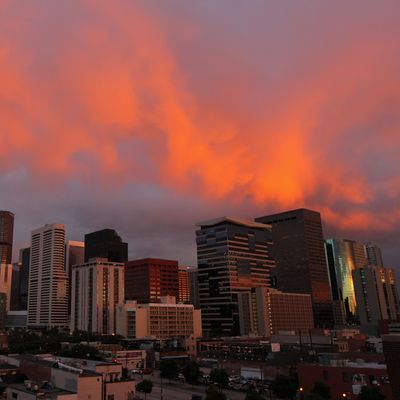
The original Democratic National Convention planned for Milwaukee this summer was postponed and then shrunk thanks to the coronavirus pandemic. And now it’s all but disappearing into a virtual haze, as the Milwaukee Journal Sentinel reports:
Whatever was left of an in-person 2020 Democratic National Convention evaporated Wednesday as organizers announced Joe Biden won’t be traveling to Milwaukee to give his presidential acceptance speech.
And neither will any of the other speakers who will address the Aug. 17-20 convention.
With the coronavirus pandemic paralyzing modern politics, Democrats will hold a virtual convention.
Biden will accept the party’s presidential nomination from his home state of Delaware.
Back in May, Democrats had set up a system of remote voting on convention business — and on the formal balloting for president and vice-president — which made necessary, at most, a minimal presence in Milwaukee. The rest of the show inevitably left a city with its own public-health worries.
Because they initially resisted a virtual convention and never completely committed to one, Republicans can’t entirely abandon Charlotte the way they abandoned the temporary replacement city of Jacksonville; a few hundred delegates will actually assemble in North Carolina to conduct essential business (including the nominations), carrying proxies from the rest of the delegates. At this point, it’s not even clear that those activities will be open to the media and the public. Trump is still figuring out where to give his acceptance speech, but it almost certainly won’t be in Charlotte.
What’s less clear is whether these developments are pandemic hiccups that will give way in four years (or whenever big live gatherings are a thing again) to a return of old-school national political conventions in their bloated and bloviating glory — or if these will be mercifully consigned to history as the atavistic and gratuitous events they have become in recent decades since losing their deliberative function. News media may well pull the plug on the already radically reduced coverage of future conventions, making them just another stop on the campaign trail. And like so many other accommodations to the pandemic made in so many areas of life, the work-arounds Democrats and Republicans developed this year for financing and energizing general-election campaigns could become permanent.
As someone who worked in the innards of Democratic conventions from 1988 in Atlanta through 2008 in Denver, I have to say it’s past time for these empty spectacles to go away. I’m just old enough to remember conventions that were interesting and spontaneous enough to justify TV-network “gavel-to-gavel coverage,” before nominees selected in primaries much earlier crushed the life out of them. And now they may finally be giving up the ghost.






























